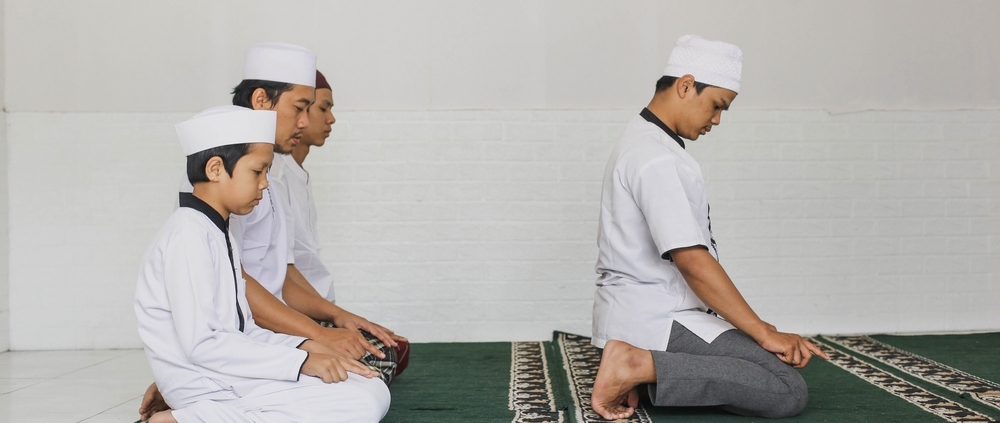What Is the Ruling on Raising Children in Islam?
Answered by Shaykh Dr. Muhammad Fayez Awad
Question
What is the ruling on raising children in Islam?
Answer
Praise be to Allah, and blessings and peace be upon the Messenger of Allah, his family, his companions, and those who align with him.
Tarbiya
“Tarbiya” encapsulates a holistic approach to nurturing individuals, focusing on their intellectual development and their moral, spiritual, and overall well-being. It emphasizes a continuous and gentle process of guidance and education throughout one’s life.
Indeed, the tarbiya and disciplining of children in accordance with the teachings of Sacred Law are among the most important tasks that families and communities should cooperate on. Parents must bear the responsibility of raising their children in the faith, protecting them from Hellfire, and focusing on teaching them the correct creed, Sacred Law rulings, and Islamic manners that they need to grow up with an Islamic tarbiya. Allah (Most High) says:
“O believers! Protect yourselves and your families from a Fire whose fuel is people and stones, overseen by formidable and severe angels, who never disobey whatever Allah orders—always doing as commanded.” [Quran, 66: 6]
Sayyiduna ‘Ali (Allah be pleased with him), in his interpretation of this verse, said: “Teach them and discipline them.” [Ibn Kathir, Tafsir Ibn Kathir]
And your Lord said:
“Bid your people to pray, and be diligent in (observing) it. We do not ask you to provide. It is We Who provide for you. And the ultimate outcome is (only) for (the people of) righteousness.” [Quran, 20:132]
“(They are) those who pray, ‘Our Lord! Bless us with (pious) spouses and offspring who will be the joy of our hearts, and make us models for the righteous.’” [Quran, 25:74]
Parental Responsibility
Narrated by ‘Abdullah ibn ‘Umar (Allah be pleased with him), he said: “I heard the Messenger of Allah (Allah bless him and give him peace), say: ‘All of you are guardians and are responsible for your wards. The ruler is a guardian and is responsible for his subjects; a man is a guardian of his family and is responsible for his wards; a woman is a guardian in her husband’s house and is responsible for her wards; a servant is a guardian of his master’s property and is responsible for his ward.
I think he also said: ‘A man is a guardian of his father’s property and is responsible for his wards.’ All of you are guardians and are responsible for your wards.’” [Bukhari; Muslim]
It is established from the Prophet (Allah bless him and give him peace). Sayyiduna Anas (Allah be pleased with him) reported Allah’s Messenger (Allah bless him and give him peace) as saying:
“He, who brought up two girls properly till they grew up, he and I would come (together) (very closely) on the Day of Resurrection, and he interlaced his fingers (for explaining the point of nearness between him and that person).” [Muslim, Ibn Hibban]
Imam Nawawi (Allah have mercy on him) commented in his explanation of Sahih Muslim, saying, “And the meaning of ‘brought up’ is taking care of their needs, tarbiya, and the like.”
The predecessors (Salaf) were keen on educating their children, often appointing specialized educators for this purpose, with many stories reflecting this practice.
Fitra, Tarbiya, and Trust
Undoubtedly, tarbiya plays a significant role in shaping children’s righteousness. Children are born with an innate disposition (fitra), and then comes the role of tarbiya in preserving or altering this innate nature.
The Prophet Muhammad (Allah bless him and give him peace), said:
“Every child is born with a true faith of Islam (i.e. to worship none but Allah Alone), and his parents convert him to Judaism or Christianity or Magianism” [Bukhari]
A child will follow the ways of his parents’ tarbiya, as the poet says:
وينشأُ ناشئُ الفتيـانِ منـَّا *** على ما كان عوَّدهُ أبـوه
ومادان الفتى بحجىً و لكن *** يعوِدهُ التدين أقربـوه
”The young among us are brought up in the manner their fathers accustomed them to, And a boy doesn’t incline naturally to wisdom, but those closest to him inculcate him with piety”
And a child in his early years is more receptive and benefits more from tarbiya, as the poet says:
قد يبلغُ الأدبُ الأطفالَ في صغرٍ * وليس ينفعهُم من بعدِه أدبُ
إن الغُصُونَ إِذا قَوَّمْتَها اعتدلْت * ولا يلينُ إِذا قَوَّمْتَهُ الخَشَبُ
“Etiquette can reach children while they are young, but it does not benefit them after that age. Indeed, if you straighten the branches, they will become upright; but wood does not bend when you try to straighten it.”
So, the young child is a trust in the hands of his parents; if they accustom him to good, he will get used to it, and if they accustom him to evil, he will get used to that too.
Imam Ghazali on Children
Imam Ghazali (Allah have mercy on him) said:
“The child is a trust in the custody of his parents, and his pure heart is a precious gem, free of any engraving or image, susceptible to any impression, inclined to whatever it is inclined towards. If accustomed to good, he will grow upon it, and his parents will be happy in this life and the hereafter.
If he is accustomed to evil and neglected like animals, he will be miserable and doomed, and the sin will be upon the one responsible for him. Just as the body is not created complete and is perfected and strengthened by nourishment, so too is the soul created imperfect, capable of perfection, and is only perfected through education, the refinement of character, and nourished by knowledge.” [Ghazali, Ihya’ ‘Ulum al-Din]
We ask Allah to take care of our children and progeny with His protection and care, for He is All-Hearing and Responsive.
[Shaykh] Dr. Muhammad Fayez Awad
